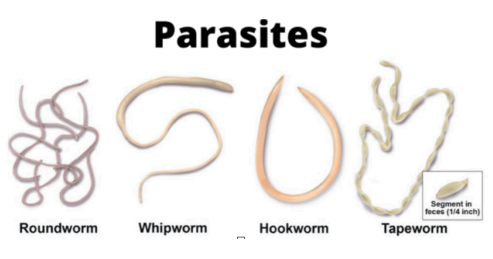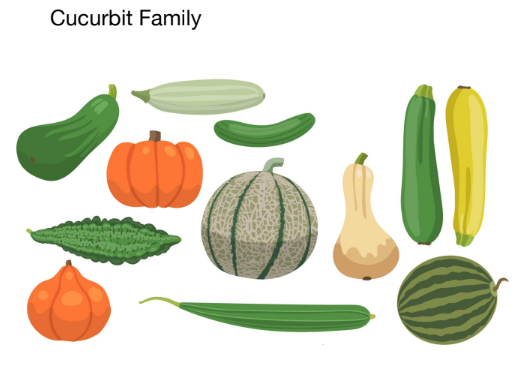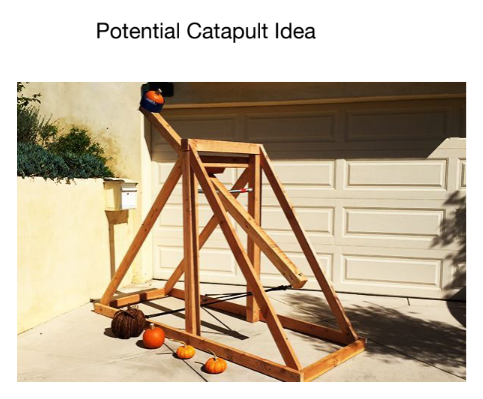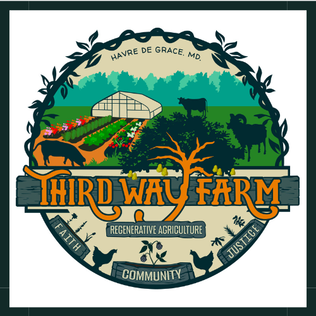|
10/2/2023 1 Comment Parasitic ParadiseFall is the time of year where life begins to shift. As the colors in the trees change, the ecosystem of the field begins to change too. Grasses push out seeds to propagate for the following year, once prevalent flies begin to die off. However, parasites, continue to flourish. And they, can become the bane of a farmer’s existence…
Whether you know it or not, parasites are already a part of life. They often live in your body, on the grass outside and are found in many animals. On the farm, we focus, not on the normal parasites in our bodies or animal bodies, but in the parasites that live in our fields. While having a healthy dose of parasites in animal bodies is normal - having too many can be debilitating. Parasites in the pasture are a year round predicament, but are felt more acutely to us farmers, in the late summer or spring. They live closest to the surface of the soil, and live in warm and humid environments. Feces provides a perfect growing location. And, as you know, animals like to poo! It’s one of their more endearing characteristics. Once mature, parasites can travel up to 2-3 inches up a plant, hang out there and wait for unsuspecting animals to come and eat them. If an animal ingests too many, they begin to get sick. Symptoms of parasites in sheep, for example, include diarrhea, lethargy, difficulty breathing, weight loss, anemia, and in extreme cases: death. As farmers, we get to live an intimate connection with the animals we love…and their problems. Parasites are one such problem. This means we have had to get to know these parasites pretty well and have learned some strategies to prevent or minimize their effects on the herds. One of the most effective parasite management strategies we use is rotational grazing. Rotational grazing is a fancy term for moving the animals around the pasture in contained and moveable electric fences. If you’ve ever been to our farm, you most likely have never seen our animals in the same place. Our pasture animals move daily! This means setting up a new fence, moving animals into the new paddock and then taking down the old fencing! Phew, I’m tired just thinking about it. But, we love to do it. If parasites only climb up the first few inches, having taller grass that animals graze down to about 4 inches, means there is a much lower chance of our sheep and cattle getting parasites. Additionally, moving animals on and off a batch of grass allows the grass to get trimmed, but then gets a chance to rest for a significant amount of time before animals are back on that space. With the land we get to steward, rotational grazing provides safety for animals from parasites, and helps enliven our pastures to grow stronger and healthier each time animals pass over it as their manure helps re-nourish it. Come over to the farm and take a tour to see what it looks like before and after animals graze an area and come watch us move them knowing that not only do we move them for fresh food, but for their gut health! Another way we minimize parasitic creatures in our animals, is by providing them with natural dewormers. (FYI - parasites are often termed as “worms”). Did you know that pumpkins and other squash related vegetables are a wonderful natural dewormer? Each fall, when the pumpkins have been carved and the summer squash decorations become out of season we collect them from friends and family and to feed to our herds because the seeds of these plants have cucurbitacin which has been shown to be a natural deworming compound. And get this… You are invited to help the farm manage parasites. Bring in your old pumpkins or other cucurbits and help share them with the field animals. To make this even more exciting, we will have a Pumpkin Chunkin Catapult that you can use to launch your previously loved cucurbit into the fields for the animals. Save the date for fun with the whole farm-ily: November 10th. Come: Launch. Laugh. Deworm.
1 Comment
10/3/2023 01:14:19 pm
Thanks for sharing this interesting information. I didn’t know that the parasites were on the lower parts of grass. It would be great fun to come and chuck a pumpkin or two but I’m out of the country until November 18. May you’ll still be chucking pumpkins then?
Reply
Leave a Reply. |
The Return of RobinhoodNestled into a hidden woods on Robinhood Road, in Havre de Grace Maryland, exists a picturesque farm community; a place of green pastures, beautiful woodlands, and colorful fruits and vegetables. And in this thriving place, a place called Third Way Farm, there is also a community on a mission to build a better world through a holistic and regenerative approach to agriculture; a mission grounded in our faith and our belief in a world where all have a place at the table. Where, when we give back to the land, and to one another, all of creation thrives. Archives
January 2024
Categories |
Barn Store Hours
Tuesdays 3-5:30pm
Fridays 3-5:30pm
601 Robinhood Road
Havre de Grace, Maryland 21078
717-669-1351



 RSS Feed
RSS Feed
